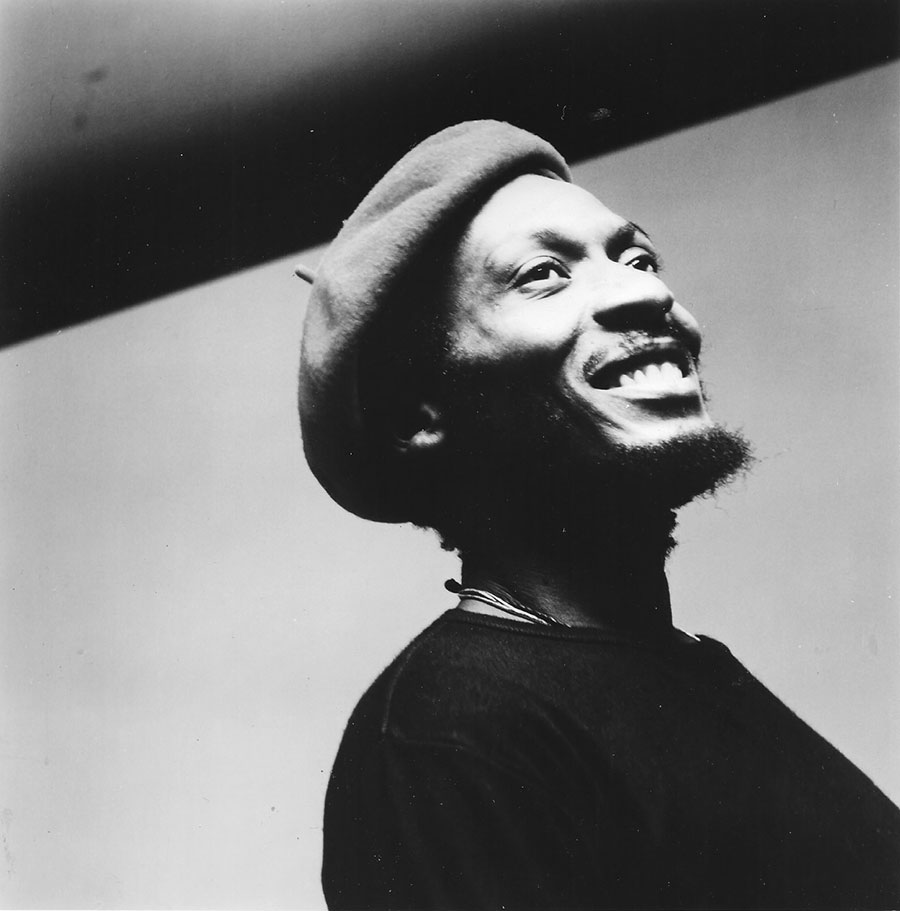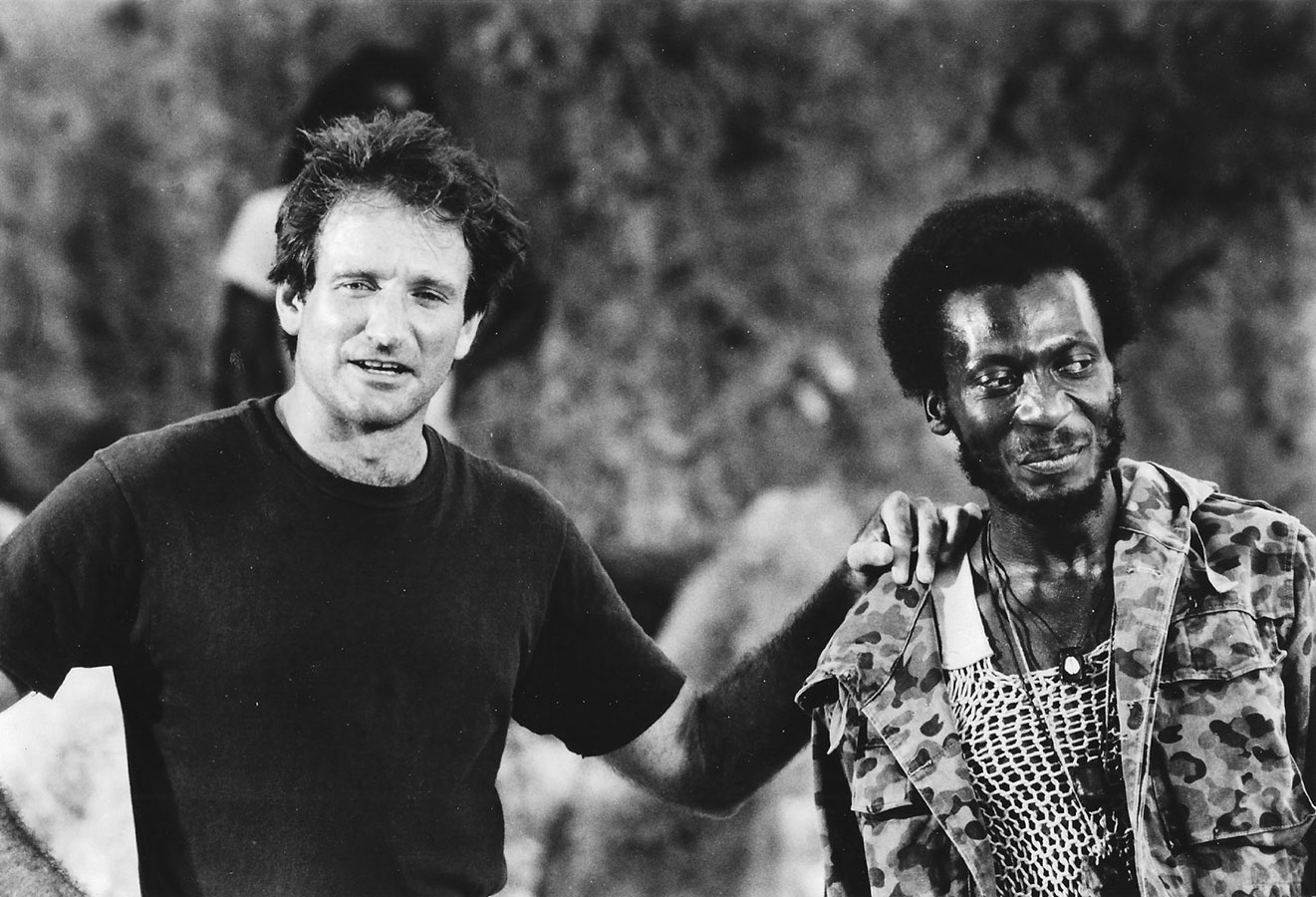Singer Jimmy Cliff, reggae music’s first international hitmaker, died November 24, 2025. He was 81.
In the ’80s, reggae music had an exotic influence on pop music, but in the opinion of Cliff, the style was too offbeat for the American mainstream. “The passing of Bob Marley left a gap, and while musical leadership has continued in the Third World, it hasn’t in the developed world, where reggae needs to be promoted,” the singer-songwriter said. “I can say this because I came in at the stage when the music was being formed—it didn’t even have a name yet.”
Back in 1962, Cliff quit school to pursue a musical career and had a No. 1 hit in Jamaica at age 14 with “Hurricane Hattie,” inspired by the storm which swept across the Caribbean. At the time, Jamaica was playing ska music, an early form of reggae with a strict, mechanical emphasis on the offbeat. Ska took off modestly in the US with Millie Small’s hit “My Boy Lollipop” in 1964
“Ska had a faster beat because it developed out of the people’s spirit—it was the beginning of Jamaica gaining independence from Britain,” Cliff explained. “When we realized what managing ourselves meant, the music slowed down to the more rhythmic ‘rock steady.’ And when we wondered where our independence would lead to, people started looking to the roots of our culture, to Africa and Marcus Garvey. Rastafarianism came in and the music became known as reggae. There are different stories about the origin of the word—the closest is that the music came out of the ghetto, a ragged environment. ‘Ragged’ became ‘reggae.’”
Reggae might have remained an isolated phenomenon, but Edward Seaga of the Jamaican parliament (later prime minister) was eager to promote the music. His efforts led to Cliff signing an international record contract and moving to Britain, where he found himself in a pioneering role as “the shepherd of reggae music.” In America, Cliff was best known for his lead role in the 1972 movie The Harder They Come. He portrayed Outlaw Ivan, a Jamaican musician coming into Kingston from the countryside, unable to find work and frustrated in his attempts to gain just compensation for his music. In the end, growing more and more alienated from the music scene, Ivan becomes an outlaw, a hero of the oppressed masses, and is finally gunned down by the police in the last seconds of the film. The Harder They Come remained a huge cult favorite, almost single handedly turning reggae music into hippie-chic. Cliff’s gorgeous rendition of the song “Many Rivers to Cross” converted Ivan the gangster dope-dealer into a sympathetic figure, and it made him a star in Europe, Africa and Latin America.
Jamaican working-class culture was virtually synonymous with Rastafarianism, the religion that revered the late Emperor Haile Selassie of Ethiopia. But Cliff didn’t sport the traditional reggae dreadlocks image—he wasn’t a Rastafarian, but a Muslim. He went into seclusion at the height of his mid-’70s fame, becoming a student of African awareness. It was left to such reggae-rasta performers as Bob Marley & the Wailers and Toots & the Maytals to make reggae-rasta popular with a broad American audience. Reggae gave a new rhythmic concept to rock music, as performers such as the Police, the Clash, Eric Clapton, the Grateful Dead and Jimmy Buffett proved. Blondie (“The Tide Is High”) and Stevie Wonder (“Master Blaster”) recorded hit singles with a heavy reggae influence.
But reggae’s impact on pop music had been disproportionate to its own commercial success, according to Cliff. The Harder They Come was more than a dozen years old when he performed at the University of Colorado Events Center in 1985, and he was anxious to focus attention on his other musical achievements. “People still seem to expect me to be Ivan, the good-guy-turned-bad,” the effusive Cliff admitted. “But I truly feel like I’m just starting my career.”
Cliff enjoyed an explosion in popularity when the Cliff Hanger album, which featured a partnership with members of Kool & the Gang, won a Grammy Award for Best Reggae Album. Two other factors aided his visibility in the American market. He returned to the screen in Club Paradise, a film also starring Robin Williams, Peter O’Toole and Twiggy, and written and directed by Harold Ramis (Animal House, Ghostbusters, Meatballs, Caddyshack). He was approached for the project, he explained matter-of-factly, “because naturally I am the most known film actor in Jamaica. I play the initial owner of Club Paradise, a hotel club. The government of the day is corrupt and wants to take the club away from me. The finality of it is that the government troops and my troops clash, and it’s like a good-over-evil situation. I become the new prime minister!”
Cliff also received attention when his composition “Trapped” was recorded by Bruce Springsteen & the E Street Band for the We Are the World benefit album—the track became the most-programmed song on radio and a staple of Springsteen’s live shows during his world tour. “I had met Bruce before—he used to do ‘Trapped’ in his sets a long time before that Ethiopian situation. He’s for real. There’s one area in my career that I haven’t been able to overcome up to now. I have helped to create the music that is now known as reggae music, but at the same time, I’ve created other music forms that aren’t as popular.”
Over the years, such fusion efforts had gotten Cliff rapped as a musical and cultural sellout. He might have deflected some of the criticism if it became known that he was Muslim and his roots were in R&B as much as reggae. But ever since he put strings on his 1970 hit “Wonderful World, Beautiful People,” he’d been castigated by certain camps. “They claimed I was watering down reggae, commercializing it. I couldn’t figure it out—they should be crediting me, rather than discrediting,” he lamented. “I am a ballad writer and singer, and I love that side of me as well. In Jamaica, they’re saying that I’m ‘the ambassador of reggae’ and those kind of things. I accept those titles that they give me, but I hope the day will come when they recognize the other side of my musical creativity.”
Cliff was inducted into the Rock and Roll Hall of Fame in 2010, one of two Jamaicans in the hall, the other being Bob Marley.



